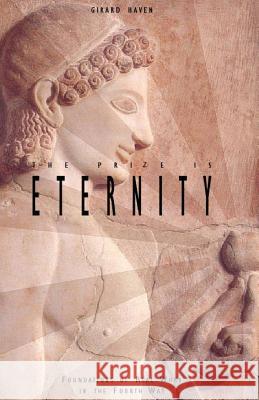The Prize Is Eternity: Foundations of Real Work in the Fourth Way » książka
The Prize Is Eternity: Foundations of Real Work in the Fourth Way
ISBN-13: 9781508493136 / Angielski / Miękka / 2015 / 172 str.
In the Fourth Way, promulgated early in the 20th century by G.I. Gurdjieff and P.D. Ouspensky, 'soul' has a precise meaning: it is produced by accumulated moments of consciousness, and is defined as an entity that exists apart from the thoughts, feelings, and physical form of man, and hence can survive death. The chief method for intentionally creating such consciousness is 'self-remembering'... For a man who can remember himself, half an hour may record impressions that would take others days, years, perhaps a lifetime to collect. Such a man has a vastly different level of consciousness. In short, he has an operational soul, and is as different from routine consciousness as a man who has risen and goes about his daily work differs from one snoring in bed at night. In this second edition of 'The Prize Is Eternity' the author explores how in order to remember oneself, or one's soul, curiously enough, one must begin to forget oneself. That is, one must be able to sacrifice one's own self-indulgence, one's entrenched feeling of identity, of being at the center of one's own universe. In our modern Age of Self-Indulgence, knowing so much more than the Ancients, we stand in our own light. The author explores how to use self-remembering to move out of our subjective, narrow, internal world, towards an awareness of, and a relation to, an infinitely grander, more objective, more compassionate universe. He explains why the effort to self-remember, if one persists in it, leads to humility, to the creation of a soul that is capable of serving an aim greater than itself. Most will dismiss this book out of hand thinking they already have a soul, and do not need self-remembering to create one or even worse that there is no soul. The truth is, the author explains, there is a soul, but few of us have any direct experience of it because we have not made the effort to remember ourselves. Nevertheless most anticipate that this entity -- the soul -- which they have not experienced directly in life will somehow carry them into a higher plane of experience at death. The author asks two simple questions: "Why? And who is this 'I' that holds such expectations, anyway?"
Zawartość książki może nie spełniać oczekiwań – reklamacje nie obejmują treści, która mogła nie być redakcyjnie ani merytorycznie opracowana.











